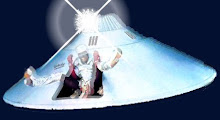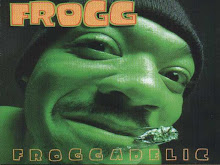
The Parliaments began as a doo-wop quintet in Plainfield, NJ. Former barber George Clinton and crew -- Fuzzy Haskins, Calvin Simon, Grady Thomas, Ray Davis -- moved to Detroit in the mid-'60s. They landed a Motown contract, only to wind up on the bench. The group finally got a single out on Revilot Records; "(I Wanna) Testify" hit on the R&B and pop charts in 1967, but lousy distribution and an ensu-ing contractual dispute prevented a followup. In the meantime, Clinton was busy immersing himself in Sly Stone and Jimi Hendrix, studying the Beatles and Bob Dylan. Once he discovered the power in those big amplifiers, soul -- and rock -- would change forever.Unable to use the Parliaments name, Clinton renamed the band Funkadelic and signed it to Westbound records. At the same time, the exact same band was rechristened Parliament and recorded Osmium for Holland-Dozier-Holland's Invictus label in 1970. (First Thangs collects all the Parliament recordings done for Invictus between 1970 and 1972.) Many of the Parliament songs recorded during these sessions showed up later, confusingly, on Funkadelic records ("Red Hot Mama," "Loose Booty," "I Call My Baby Pussycat"), proving the two bands weren't exactly two bands, not yet. The furious funk rock is in place, as is Clinton's self-conscious humor ("Little Old Country Boy") and skill with vocal arrangements ("Come In Out of the Rain"). It's not a footnote, and works better as an album than several Funkadelic records.Up for the Down Stroke was the moment when Clinton decided what made this band distinct from Funkadelic: punchline vocals and intricate harmony arrangements; Bernie Worrell's keyboard as bass line, melody, and Harpo-like vocal respondent; an easy-going sense of humor; horns, keyboards, and interlocking percussion rather than rock aesthetics and guitar solos. Veteran James Brown sidemen like bassist Bootsy Collins and the newly named Horny Horns (Maceo Parker, Fred Wesley) pump up the beat, with an ever-shifting cast of singers. The title track is one for the time capsule, as Clinton plays ringmaster with end to end hooks and beats that won't stop. The group's first single, "Testify," gets a decent reworking, and "All Your Goodies Are Gone" is a funky left turn that became a hip-hop sample. From there, the forays into ballads ("Whatever Makes Baby Feel Good") and drum machines ("The Goose") range from atmospheric to negligible but don't stop the flow. (The 2003 remastered reissue adds two alternate mixes and one very strong unreleased track, "Singing Another Song.")The title track of Chocolate City is one of Clinton's most successful political concepts; an AM radio DJ trying to paint the White House black with the best band in town. The funk stays strong for five songs and then Clinton leads the band into some pleasant, if thin, male vocal harmony tracks that sound more like the old doo-wop style than Clinton's new approach, which used female voices to better effect. The Isaac HayesÐstyle funeral funk of the underrated "I Misjudged You" sounds like trip-hop now, and "Big Footin' " brings back the bottom with a crazed Fuzzy Haskins vocal (and a quote from Funkadelic's "A Joyful Process"!). The reissue adds 2 alternate mixes and one unreleased comedy track, "Common Law Wife."That was it for fine-tuning. Parliament began a serious run. Mothership Connection featured Clinton as MC, rapping, teasing, and herding his band through a new pop music with links to Africa, deep space, and urban politics. The balance here is perfect -- the endless manifesto "P. Funk," the knee-buckling sweetness of the horns and vocals calling back and forth across the aisle on the title track, and their best-known sing-along, "Give Up the Funk," which probably started as many bands as the Ramones' first album. The groove undergirds everything, so that comedy tracks ("Unfunky UFO" and "Handcuffs") flow into the whole without a drop in bumpativity.On The Clones of Dr. Funkenstein, the band is in its prime and knows it. The Funky Trinity of George Clinton, Bootsy Collins, and Bernie Worrell are almost the Beatles of funk on this one, stringing sex, funk, and mad science into a seamless thing that doesn't know how to not please. The horns echo '40s swing without threatening the funk, and the vocal interplay is playful and deeply embedded. Choose any track -- the low-slung title track, which is pure hip-hop attitude before the fact, or the lovely "Everything Is on the One," a slower, sweeter blend -- and you'll be rewarded.Funkentelechy vs. the Placebo Syndrome goes heavier on space travel than sex and introduces a new Clinton character, Sir Nose D'Voidoffunk, enemy of all things danceable (and a stand-in for the rock and pop audiences not understanding Clinton's too-black, too-strong circus crew). Again, the flow from track to track is impeccable, with Bootsy's watery, enveloped bass running like a live wire through everything. They're having such a good time in their atomized cloud of riffs and funny voices, you can't help but get carried along. "Wizard of Finance" is one of Clinton's best nonfunk tunes, a Broadway-ready slow tune about finance and romance. The album ends with one of the 20th century's greatest songs about absolutely nothing, "Flash Light," which is criminally short at 5:46. (Go to the 12" Collection for the full 10:42 version.) Bernie Worrell will one day be elected Emperor of the World for his work on this song. So it has been written, so shall it be done!Motor-Booty Affair is a slight step backward, with Clinton concentrating on the cartoon characters and offering the first weak opening track in Parliament history: "Mr. Wiggles." "Aqua Boogie" is a masterpiece, but again, go for the longer version. The band is good enough to dress everything up nicely, but there are too many longueurs and too few hooks to make this a good ride. (There is some fascinating comedy and musical madness buried in the last track, "Deep," possibly their oddest track ever.) You'd be better off at this stage in P-Funk history with spinoffs like Parlet (responsible for one of P-Funks' most monstrous moments, "Huff 'n' Puff") or Bootsy's excellent solo LPs.Gloryhallastoopid and Trombipulation boast general product quality but few killer tracks, especially on Trombipulation. (Gloryhallastoopid does have the obscene but pretty great "Theme From the Black Hole," and "The Big Bang Theory," featuring the synth bass line that showed up the next year in Stevie Wonder's "Master Blaster.") Tear the Roof Off is a two-disc best-of, while Funked Up is one, long, remastered best-of. Both are excellent, as is The 12" Collection, which presents the long versions of some of their masterpieces, plus lesser-known tracks like Parlet's "Ridin' High" and the original version of "Testify," which reveals a very strong Sly Stone influence. (SASHA FRERE-JONES) From the 2004 The New Rolling Stone Album Guide










